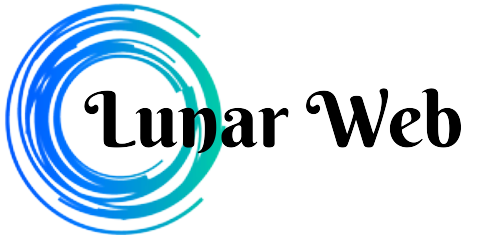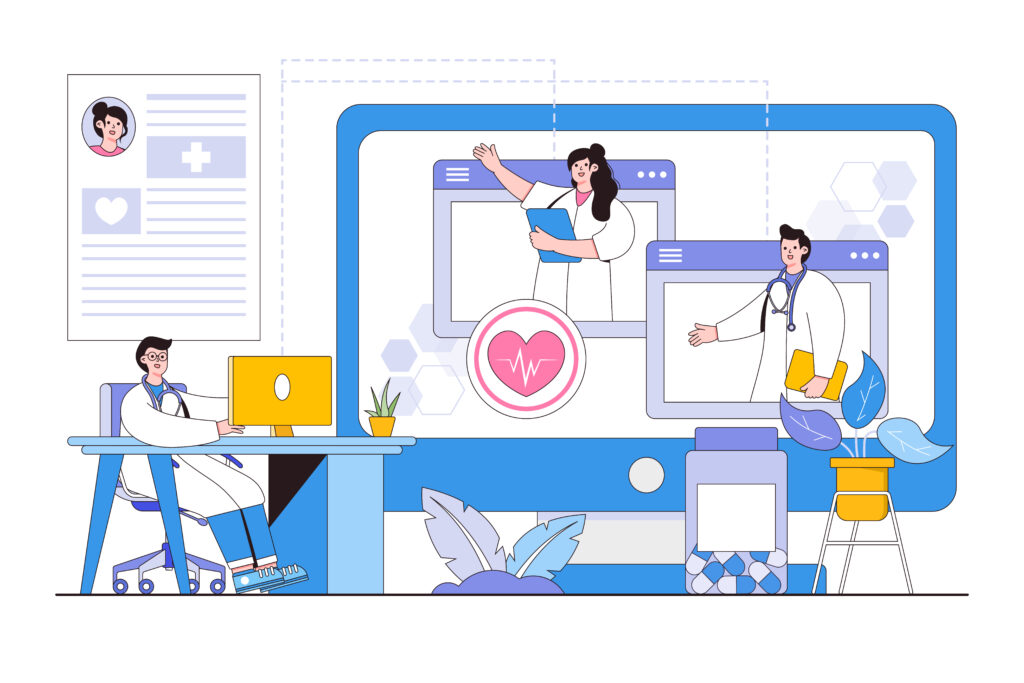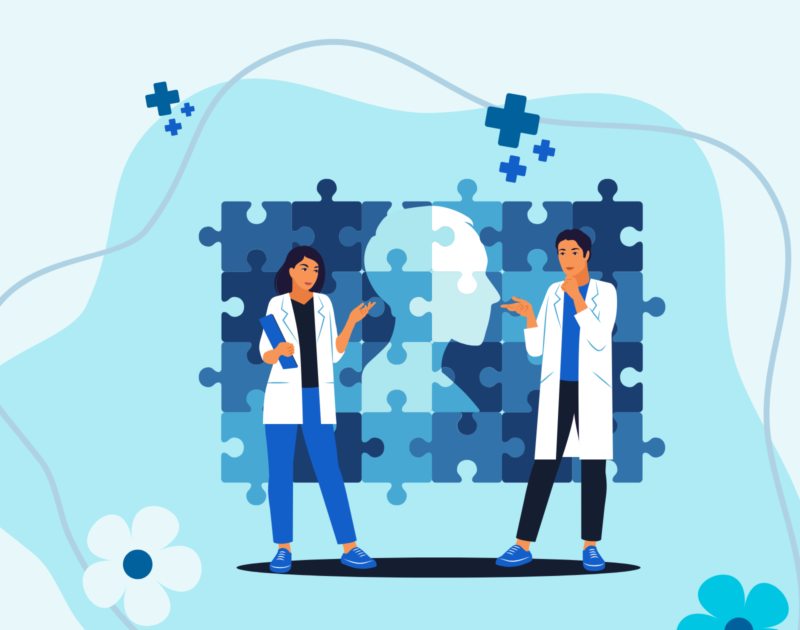Digital technology has drastically transformed healthcare over the last ten years. The market is experiencing swift growth in demand for custom healthcare software, mobile health apps, patient management systems, telehealth platforms, and remote health monitoring tools. Building healthcare solutions that work effectively while ensuring compliance involves navigating multiple healthcare software development challenges.
Healthcare solutions face unique complexities due to strict regulations, safeguarding of protected health information (PHI), interoperability needs, and evolving market expectations.
This guide examines critical healthcare software development challenges, strategies for overcoming them, and the importance of partnering with a specialized agency like Lunar Web to achieve success.
Why Healthcare Needs Robust Software Solutions
The Growth of Digital Transformation in Healthcare

The healthcare industry is undergoing a significant shift toward digital transformation in healthcare. Hospitals, clinics, and private practices rely increasingly on:
- Electronic health records (EHRs)
- Telehealth platforms
- Mobile health apps
- Remote health monitoring
- AI-driven diagnostics
- Blockchain-based health data security
Digital transformation enhances patient care, increases operational efficiency, and enables providers to meet growing demands for innovative, tech-driven medical services.
However, building efficient health tech software development solutions that are scalable, secure, and interoperable brings its own challenges.
Common Healthcare Software Development Challenges
Ensuring Regulatory Compliance (HIPAA, GDPR, HL7)
Among the major healthcare software development challenges is ensuring regulatory compliance. Protected health information (PHI) must be handled following strict laws such as:
- HIPAA for US healthcare data privacy
- GDPR for European data protection
- HL7 standards for healthcare data exchange
- FDA guidelines for medical device software
Achieving compliance in medical software is essential to avoid legal penalties and protect patient trust.
Data Privacy and Cybersecurity Risks
Healthcare organizations are prime targets for cyberattacks. Building secure medical app development processes is critical for safeguarding:
- Medical histories
- Insurance records
- Billing data
- Patient identifiers
Strong encryption, secure authentication protocols, and ongoing risk assessments are vital to ensuring healthcare data security.
Integration with Legacy Systems and EHRs
Many healthcare providers still operate on outdated systems, making electronic health record integration difficult. Challenges include:
- Legacy architectures
- Inconsistent data formats
- Limited system documentation
Poor integration risks breaking workflows and compromising patient care.
Interoperability Between Multiple Platforms

Healthcare interoperability — enabling smooth communication between EHRs, pharmacies, insurance, and lab systems — remains a major hurdle. Standards like FHIR and HL7 help, but seamless integration still requires significant technical expertise.
User Experience for Both Patients and Providers
Healthcare applications must balance two needs:
- Patients demand simplicity and ease of use.
- Providers need detailed, comprehensive dashboards.
Navigating medical software design challenges means creating intuitive, user-centered applications without compromising on functionality.
Scalability for Growing Patient Data
With rising patient numbers and remote care adoption, scalable healthcare systems are essential. Solutions must:
- Manage increasing volumes of patient data.
- Support real-time analytics.
- Maintain performance during high-demand periods.
Budget Constraints and Rising Development Costs
Developing custom healthcare software — especially involving EHR system development, HIPAA-compliant software, and telehealth platforms — often requires substantial investment. Balancing cost efficiency with technical excellence remains a major concern.
Time-to-Market Pressure in a Competitive Industry
The competitive landscape forces organizations to accelerate product launches. Yet, hastening development can lead to non-compliance, security vulnerabilities, and usability issues.
How to Overcome Healthcare Software Development Challenges
Adopt a Compliance-First Development Strategy

To build robust healthcare solutions:
- Engage legal experts early.
- Implement Privacy by Design.
- Conduct regular audits.
Adopting a compliance-first mindset ensures your HIPAA-compliant software is ready for both domestic and international markets.
Use Secure Architecture and Encryption Protocols
Prioritize healthcare data security by:
- Applying end-to-end encryption.
- Incorporating multi-factor authentication.
- Conducting regular penetration tests.
These steps protect sensitive protected health information (PHI) from evolving threats.
Implement API-Based Integration Models
Ease electronic health record integration with modern API-first development, using:
- RESTful APIs
- Standardized data formats like FHIR
- Modular designs for flexibility
Use Interoperability Standards like FHIR and HL7
Overcome healthcare interoperability hurdles by:
- Structuring data through FHIR.
- Enabling communication via HL7 messaging standards.
- Validating interoperability during QA testing.
Embrace User-Centric Design and Usability Testing
Solve medical software design challenges with user-first principles:
- Build intuitive patient interfaces.
- Design efficient provider dashboards.
- Prioritize accessibility for diverse users.
Frequent usability testing across demographic groups ensures widespread adoption.
Choose Scalable Cloud-Based Solutions
Opt for cloud-native infrastructure to build scalable healthcare systems that:
- Expand storage seamlessly.
- Scale dynamically with usage.
- Support remote health monitoring and telehealth with low latency.
Select compliant cloud platforms like AWS HealthLake, Google Healthcare API, or Azure Health Data Services.
Work with an Experienced Development Partner like Lunar Web
Successfully navigating healthcare software development challenges requires expertise. Lunar Web offers:
- Custom healthcare software tailored to your specific needs.
- Expertise in health tech software development.
- Secure cloud integrations.
- Compliance-driven processes across HIPAA, GDPR, HL7, and FHIR standards.
Role of Agile Methodology in Healthcare Software

Faster Iterations and Feedback Cycles
Agile methodologies:
- Enable incremental product releases.
- Encourage frequent feedback loops.
- Catch issues early in the development process.
Agility greatly enhances the quality of health tech software development projects.
Flexibility for Changing Healthcare Regulations
With regulations constantly evolving, Agile allows teams to:
- Adapt quickly.
- Update compliance measures efficiently.
- Respond proactively to new healthcare challenges.
Technologies That Help Solve Healthcare Software Challenges
AI & Machine Learning for Diagnostics and Automation
AI empowers healthcare by:
- Accelerating diagnosis.
- Enabling predictive analytics in healthcare.
- Automating administrative workflows.
Artificial Intelligence adoption dramatically improves patient care and reduces operational costs.
Blockchain for Secure Health Records
Blockchain ensures:
- Tamper-proof protected health information (PHI) storage.
- Secure record sharing between providers.
- Enhanced transparency in data management.
It strengthens healthcare data security dramatically.
IoT for Remote Patient Monitoring
IoTs facilitates:
- Real-time remote health monitoring.
- Chronic disease management.
- Smart integrations into patient management systems.
IoT devices promote proactive, personalized patient care.
Telemedicine Platforms for Accessible Care
Telehealth platforms make healthcare more accessible by:
- Expanding services to rural regions.
- Supporting mental health and follow-up care.
- Reducing hospitalization rates.
Telemedicine is becoming a central pillar of future healthcare delivery.
Here’s Why Lunar Web Stands Out for Healthcare Software Development
Industry-Specific Experience in Health Tech
Lunar Web specializes in custom healthcare software, with expertise in:
- HIPAA-compliant software.
- EHR system development.
- Remote health monitoring applications.
- Building efficient mobile health apps for chronic and preventive care.
Compliance-Driven Development Approach
Our development model ensures:
- Full adherence to HIPAA, GDPR, HL7, and FHIR regulations.
- Rigorous protection of protected health information (PHI).
- Comprehensive documentation and QA.
End-to-End Services from Ideation to Deployment
Lunar Web offers:
- Ideation workshops and wireframing.
- User-centric medical app design.
- Backend, cloud, and DevOps solutions.
- Post-launch maintenance and upgrades.
We act as your true digital transformation partner in health tech software development.
Conclusion
Developing innovative, compliant, and secure healthcare solutions demands overcoming many healthcare software development challenges. From ensuring airtight regulatory compliance to achieving smooth electronic health record integration, building reliable and scalable healthcare platforms is no simple task.
These obstacles require strategic foresight and a trusted development partner.
Lunar Web brings healthcare industry-specific expertise, compliance-driven processes, and cutting-edge technology adoption to deliver custom healthcare software that leads digital transformation efforts while prioritizing healthcare data security and protected health information (PHI).
Ready to tackle healthcare software challenges with confidence? Connect with Lunar Web today and bring your vision for innovative healthcare solutions to life.





